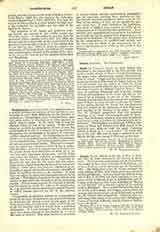

Compromise (in CANON LAW), in a general sense, is a mutual promise or contract of two parties in controversy to refer their differences to the decision of arbitrators. Compromise (Lat. Corn promissum) may take place either in elections or in other matters in which dispute arises. In the latter case it may be effected either by law or by option. If the arbiter holds his position by prescription of law, ex jure, the compromise is by law or necessary; if by agreement of the parties, the compromise is by option or voluntary (arbiter compromissarius). In compromise by law the arbiter juris is compelled to take the office; his sentence can be appealed from; but he has coercive power over all and can examine and punish. Whereas in compromise by option the voluntary arbiter is free to undertake the office; there is no appeal from his decision, for the parties freely bind themselves to abide by it; he can only take cognizance of the case; and his duties and powers are defined, conferred and imposed by the parties who have freely chosen him. According to Roman law, and also the old canon law (jus vetus), there was no appeal from the decision of the voluntary arbiter. Later canon law, however, admits of an extrajudicial appeal (provocatio ad causam), especially if there be manifest injustice in the decision. If more than one arbiter be appointed, the number should be an odd one. The subject of compromise can only be such matter as lies within the disposition of the contesting parties. Hence causes beyond the disposal of private parties cannot be made the subject of compromise, as, e.g., criminal causes, matrimonial causes properly so called, causes reserved by law to the supreme courts.
Compromise in elections consists in a commission given by the body of electors to one or several persons to designate the elected person in the place of all. This compromise, in order to be valid, must be the act of all the electors, unless it results from a pontifical declaration. It is not necessary that the compromissarii thus chosen belong to the Chapter (q.v.) or to the body of electors; they must, however, be clerics, as laymen cannot exercise ecclesiastical jurisdiction and are expressly excluded from elections by law. The electors can posit conditions which must be fulfilled by the arbiters, if they are not against the general canon law. If such conditions are legitimate, they must be fulfilled under penalty of nullity of the compromise or of the election thus performed. In an absolute and unconditioned compromise the arbiters are bound only by the general laws of procedure to be observed in elections. If the person thus designated by the compromissarii be qualified and worthy, and the form and the limits of the compromise be observed, the electors must abide by the result of this decision.
LEO GANS

